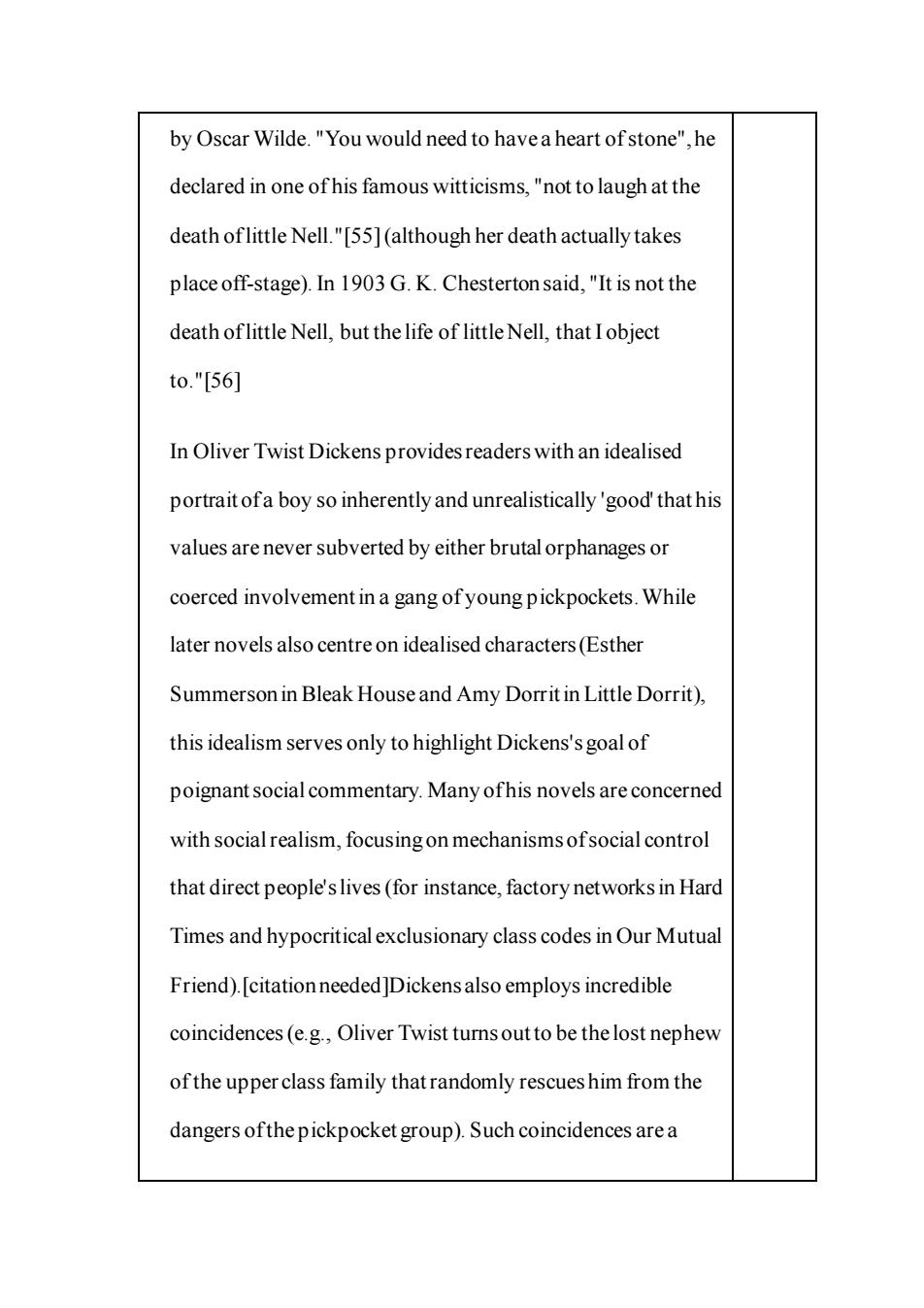正在加载图片...

by Oscar Wilde."You would need to havea heart ofstone",he declared in one of his famous witticisms,"not to laugh at the death oflittle Nell."[55](although her death actually takes placeoff-stage).In 1903 G.K.Chestertonsaid,"It is not the death oflittle Nell,but the life of little Nell,that Iobject to."[56] In Oliver Twist Dickens providesreaders with an idealised portrait ofa boy so inherently and unrealistically'good'that his values are never subverted by either brutal orphanages or coerced involvement in a gang ofyoung pickpockets.While later novels also centre on idealised characters(Esther Summersonin Bleak Houseand Amy Dorrit in Little Dorrit), this idealism serves only to highlight Dickens's goal of poignantsocialcommentary.Many ofhis novels areconcered with socialrealism,focusingon mechanismsofsocial control that direct people's lives(for instance,factory networks in Hard Times and hypocritical exclusionary class codes in Our Mutual Friend).[citation needed ]Dickens also employs incredible coincidences(e.g.,Oliver Twist turnsout to be thelost nephew ofthe upper class family that randomly rescues him from the dangers ofthe pickpocket group).Such coincidences are aby Oscar Wilde. "You would need to have a heart of stone", he declared in one of his famous witticisms, "not to laugh at the death of little Nell."[55](although her death actually takes place off-stage). In 1903 G. K. Chesterton said, "It is not the death of little Nell, but the life of little Nell, that I object to."[56] In Oliver Twist Dickens provides readers with an idealised portrait of a boy so inherently and unrealistically 'good' that his values are never subverted by either brutal orphanages or coerced involvement in a gang of young pickpockets.While later novels also centre on idealised characters (Esther Summerson in Bleak House and Amy Dorrit in Little Dorrit), this idealism serves only to highlight Dickens's goal of poignant social commentary. Many of his novels are concerned with social realism, focusing on mechanisms of social control that direct people's lives (for instance, factory networks in Hard Times and hypocritical exclusionary class codes in Our Mutual Friend).[citation needed]Dickens also employs incredible coincidences (e.g., Oliver Twist turns out to be the lost nephew of the upper class family that randomly rescues him from the dangers of the pickpocket group). Such coincidences are a